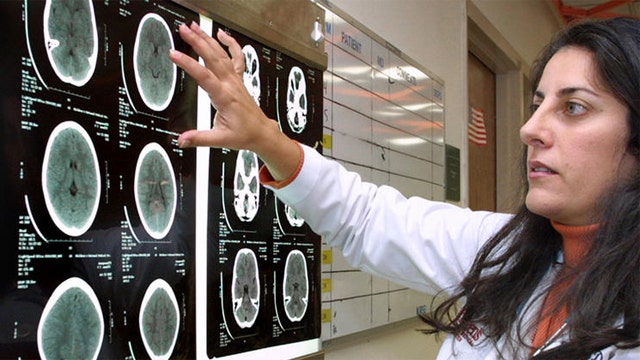Fox News Flash top headlines for November 2
Fox News Flash top headlines are here. Check out what's clicking on Foxnews.com.
New research has tracked the replication and spread of the protein tau for the first time.
Aggregates of tau and the protein beta-amyloid are involved in the development of Alzheimer's disease.
The international study, published at the end of last month in the journal Science Advances, was led by scientists at the University of Cambridge.
In it, the authors wrote that by bringing together chemical kinetics with measurements of the tau aggregates, or "seeds," across brain regions, they could quantify the rate of their replication in human brains.
After developing a mathematical model to simulate the progression of the disease and using five different methods of tau quantification – ranging from postmortem seed amplification assays to tau PET (positron emission tomography) scans of the brains of living individuals – the researchers said that they had obtained comparable rates in several different datasets.
"Our results suggest that from Braak stage III onward, local replication, rather than spreading between brain regions, is the main process controlling the overall rate of accumulation of tau in neocortical regions. The number of seeds doubles only every ∼5 years. Thus, limiting local replication likely constitutes the most promising strategy to control tau accumulation during [Alzheimer's disease]," they wrote.
Braak stage III refers to the third of six stages of the Braak staging methods used to classify the degree of pathology in Alzheimer's disease.
PUZZLES, CARD GAMES LATER IN LIFE MAY DELAY ALZHEIMER'S ONSET BY FIVE YEARS, STUDY FINDS
Previously, as Medical News Today notes, some believed that Alzheimer's disease progresses when tau seeds spread to unaffected regions in the brain.
These findings, the publication adds, could prove important in the development of new therapies.
Alzheimer's disease is the most common type of dementia.
In 2020, as many as 5.8 million Americans were living with Alzheimer's disease, according to the U.S. Centers for Disease Control and Prevention (CDC). That number is expected to triple by 2060.
Scientists do not yet fully know what causes Alzheimer's disease, but age is the best-known risk factor.
CLICK HERE TO GET THE FOX NEWS APP
Changes in the brain can begin years ahead of symptoms and as tau tangles with beta-amyloid accumulate in the brain, they kill nerve cells.
The loss of nerve cells causes shrinkage of the brain, interfering with cognition and memory.












































